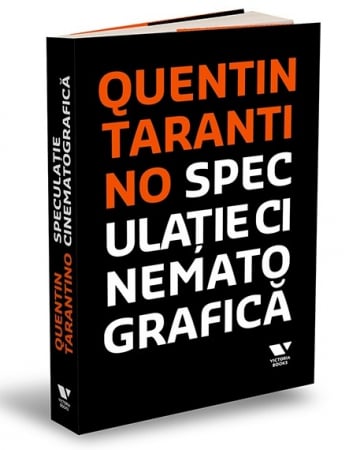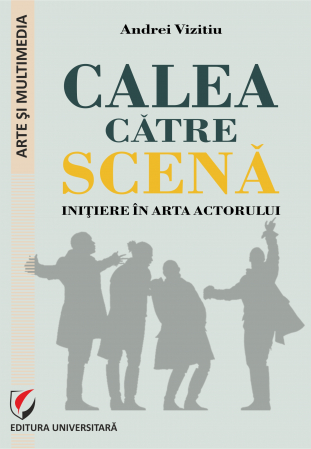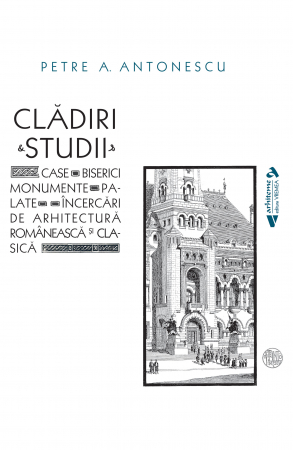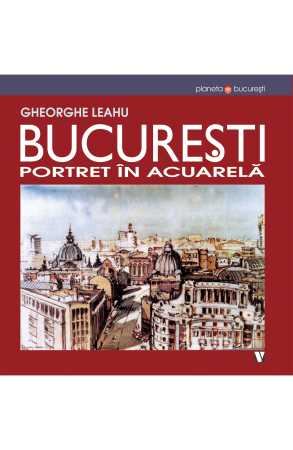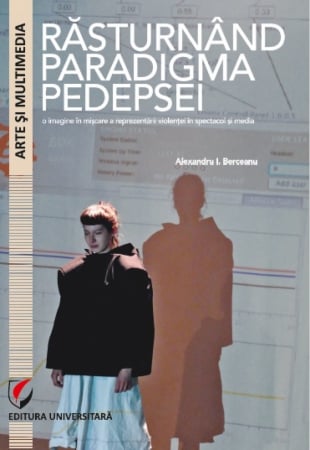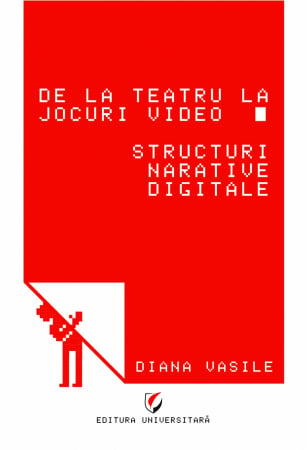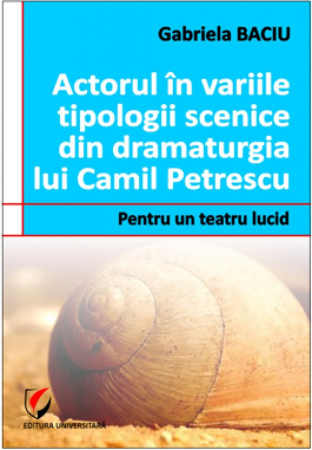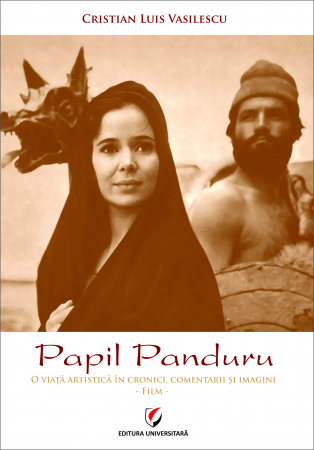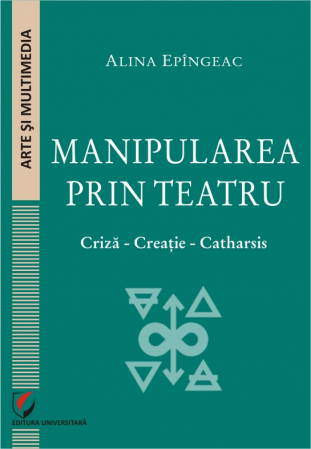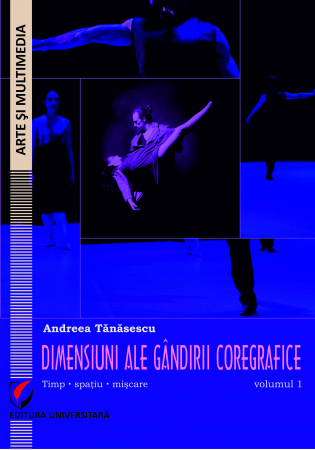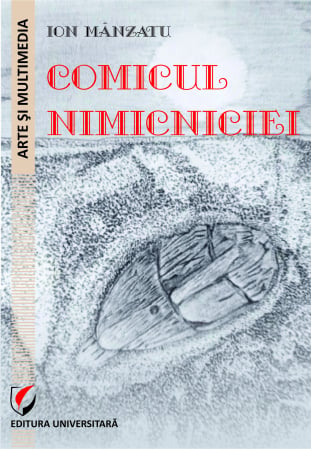ISBN: 978-606-28-0721-4
DOI: 10.5682/9786062807214
Publisher year: 2018
Edition: I
Pages: 326
Publisher: Editura Universitară
Author: Cristian Luis Vasilescu
- Description
- Download (1)
- Authors
- Content
- More details
- Reviews (0)
The origin of this work lies in the rich photographic collection and in the goodwill to make available this collection - the repository of his artistic past - of the man of theater and film, the master Papil Panduru.
At a time when the past is treated superficially, is misinterpreted or ignored - let's say denied - by characters who set milestones of roads that lead to nowhere, this book comes to show what theater was once and the Romanian film and about what should be aimed at.
It will be an illustrative-expository work, which will not miss the analysis of moments such as, for example: the relationship to the socio-political climate of the time when the protagonist was formed and consecrated or the circumstances in which he met people who influenced or influenced by his career.
At the disappearance of the director Sergiu Nicolaescu, the academician Eugen Mihaescu would write: “Today I lost a friend. Romania has lost [the] last aristocrat of art ... ”. The aristocracy has no social color. We find aristocrats both among the first-class commanders (Nicolaescu) and among the soldiers (read of ordinary people among the actors. As is the case of our protagonist. Panduru).
The rich photographic collection supports this thesis, as the text of this paper will try the same thing.
The Author
-
Papil Panduru: O viata artistica in cronici, comentarii si imagini
Download
Preface / 7
Artistic profile / 9
Confession of faith / 12
Nearby, during student and graduation / 15
Note on personality / 27
Theater / 29
- Timisoara / 29
- Craiova / 85
- Iasi / 107
- Bucharest / 158
Other artistic contributions / 323
Instead of closing / 325
In the world of theater and film we meet complete actors, who manifest themselves with the same ease - both on stage and on the set - but who do not particularly aspire to prominent places, but compensating for this fact by not great evolutions as duration in the economy of plays or movies, but of a deep artistic experience.
"I did not have the audacity that others showed", Master Papil Panduru would confess - because it is about His Majesty.
But we believe that a deep understanding of human nature - doubled by his good peasant sense - of awareness of his role and place in the collective environment led him to accept what life has given him. "In my job, talent is debatable, because many brave individuals attack this platform of life called acting ... In the end, this job is learned, but if you don't have a calling ...", she tells the journalist Roxana Vintila, from Jurnalul National, in October 2008.
He would declare himself in an interview with columnist Roxana Pana, in 1982, when the film Yellow Rose was released, a film in which he plays his first lead role, Martolea: "I saw myself, I didn't see myself, I played always the moment with faith", so that later, at the age of 74 (2008), to reveal a lesser known facet of his personality to the public, declaring for the mentioned daily: "I am a very docile actor in front of the director".
A series of characters he met in Bucharest school life and who paved his way to the theater, first - such as the director of the Elementary School in the Damaroaia neighborhood, Serghiescu, who recommended him to the technical director of the National Theater in Bucharest, Costel Manolescu -, then, the friendship that bound him to the poet Nicolae Labis, directed his steps towards the artistic world.
Through the technical director, Manolescu, he comes to the attention of the TNB set director, Traian Zecheru, and thus is hired as a prop.
The meeting with the director Marietta Sadova would bring her the first theatrical appearance, in the role of Stefan cel Mare, next to the master George Calboreanu, in the show Sundown.
Forced by a circumstance to whisper a reply to the great actor that he did not remember, he stands out in front of him by his bold gesture and inspiration to help him. Shortly afterwards, during a break, in a discussion attended by the actress and teacher Dina Cocea - Maria's interpreter, the voivode's wife -, Master Calboreanu recommended her to attend the institute and recommended that she take him to her class.
In the autumn of 1957 he was admitted to the institute, the poem Death of the Deer being his exam, entering the third, passing in front of a commission whose head was another great actor, Costache Antoniu, the rector of the institute, and of which they were part. George Dem Loghin, Beate Fredanov, Marietta Sadova, Dina Cocea, Solomon Ghelerter, Ion Fintesteanu.
Upon graduation, in 1961, he was assigned to the Regional Theater in Bucharest, then, at his request and through the intervention of Constanta Craciun, Minister of Culture, to the State Theater "Matei Millo" (later, through the efforts of its director, Gheorghe Leahu, National Theater of Timisoara). He performed on his stage for 5 years (between November 15, 1961 and November 15, 1966); a number of about as many years evolving on the stage of the National Theater in Craiova (November 16, 1966 - December 31, 1970); after which, for over 6 years (between January 1, 1971 and July 1, 1977), he performed on the stage of the National Theater in Iasi, "Vasile Alecsandri". Between January 1, 1978 and July 1, 1978, for six months, he joined the staff of the "Maria Filotti" Theater in Braila.
The first show in which we meet him on the stage of the Little Theater in Bucharest dates from May 15, 1977. In the almost 60 years dedicated to the stage, he played in an impressive number of plays.
Among the directors who worked with His Majesty can be mentioned: Marietta Sadova, Bucharest; Constantin Anatol, Yanis Veakis, Dan Nasta, in Timisoara; Valeriu Moisescu, in Craiova; Sorana Coroama Stanca, Virgil Tanase, from Iasi; Dinu Cernescu, Silviu Purcarete, Cristian Hagi Culea, at the Teatrul Mic in Bucharest.
Also, the one who would become his wife and who is a well-known theater director - Mrs. Catalina Buzoianu - entrusted him with roles in plays staged by His Majesty, after, until this professional stage, when she was just actress, she had also been his stage partner.
The first meeting with the feature film - unfortunately missed - was to be due to director Dinu Cocea, assistant to director Lucian Bratu for the film Tudor.
He had selected him for the titular role: Tudor Vladimirescu, because all the personal data recommended him, to which is added the fact that he was originally from Gorj, where Mr. Tudor had risen and raised his people to arms.
The disagreement between him, the young actor, and the director Lucian Bratu would matter (Bratu had attributed the role of another great actor, Moldovan: Emanoil Petrut. A verbal incident arose, which would lead to complaints from Bratu and at the request of the young graduate, made in front of the "heavyweights" of the institute: Costache Antoniu, George Dem Loghin, Beate Fredanov and the Minister of Culture, Constanta Craciun - who asked for explanations - to be assigned to a theater in the province, episode mentioned above). Then, probably in 1964, directed by Cornel Popa, he filmed for a television series, almost forgotten today: Cosmin, Son of the Bison, but released in 1968.
The real meeting with the feature film would be due to Sergiu Nicolaescu, in whose debut film, DACII, he plays the role of a Dacian nobleman (tribal chief).
Interesting for the passion that Sergiu Nicolaescu has made since this film for horses is the discussion from the moment when the two met, and when, invited to the house of the future great director - for one night -, Mr. Panduru takes talked about how to connect and how to strengthen the human-horse relationship.
Together with Sergiu Nicolaescu he will make 7 films: the one mentioned (1967), The Deer Hunter (1968), Mihai Viteazul (1971), Mircea (1989), The Beginning of the Truth. The Mirror (1994) and a television series: The War of Independence (1977), in which Nicolaescu was co-director. Possessing a robust physique and having an exceptional sports training, they entitled him not only to interpret his own scenes with a high degree of difficulty, but also to approach the pioneers of those who were the elite infantrymen of the Romanian film action: stunts (at the disappearance of the terrible child of the Romanian School of Stuntmen, Sobolcz Cseh, on the main alley of the Bellu cemetery and in the chapel could be seen His Majesty paying a last homage to the one who was one of his best friends).
In the film, we meet him in films by filmmakers Dinu Cocea, Doru Nastase, Gheorghe Vitanidis, Constantin Vaeni, Andrei Blaier, Nicolae Margineanu, Virgil Calotescu, Dan Pita, Lucian Pintilie, Ioan Carmazan, Florin Codre, and the younger Titus Muntean, Napoleon Helmis (Ioan Carmazan is the second director who entrusts him with a leading role. In the film Lisca).
Among foreign directors, Eran Riklis gave him a role in one of his films.
Another great role for which he felt called, according to his own confession, was Ilie Moromete, from Morometii (1986), by Stere Gulea. He remains the same man related to his profession of faith, quietly and obediently waiting for the call of those who should have in mind and deed the exhortation of another great actor and teacher, Ion Fintesteanu: “Beware of mocking actors. Let them die in splendor."
Cristian Luis Vasilescu

6359.png)
![Papil Panduru: An Artistic Life in Chronicles, Comments and Images - Cristian Luis Vasilescu [1] Papil Panduru: An Artistic Life in Chronicles, Comments and Images - Cristian Luis Vasilescu [1]](https://gomagcdn.ro/domains/editurauniversitara.ro/files/product/large/papil-panduru-o-viata-artistica-in-cronici-comentarii-si-imagini-310-255564.jpg)
